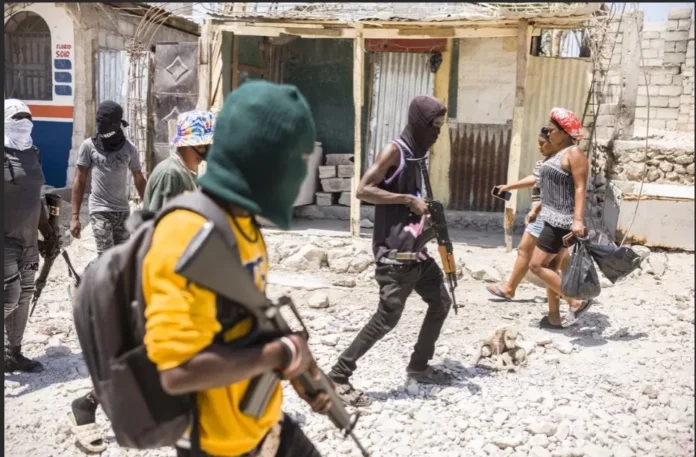Already a subscriber? Make sure to log into your account before viewing this content. You can access your account by hitting the “login” button on the top right corner. Still unable to see the content after signing in? Make sure your card on file is up-to-date.
The United Nations has signed off on an expanded international security mission for Haiti aimed at combating gang violence and their control over the nation’s capital.
Some shit you should know before you read: If you’re unaware, the security situation in Haiti is awful, to put it bluntly. Shit hit the fan after the 2021 assassination of President Jovenel Moïse, which left a massive power vacuum and plunged the country into chaos. Since then, heavily armed gangs have taken control of roughly of the capital, Port-au-Prince. In response, the international community launched the Kenyan-led Multinational Security Support (MSS) mission in 2023 to support Haitian police, but it quickly proved ineffective, understaffed, underfunded, and plagued by logistical failures. Its limited impact drew criticism from both Haitians and international observers, with many viewing it as a symbolic presence rather than a functional solution. In a recent change of approach, Haiti’s transitional government turned to Vectus (a private security firm linked to former Blackwater founder Erik Prince) in a bid to directly target and dismantle gang networks and restore order to the capital.

What’s going on now: In a notable development, the United Nations Security Council approved the creation of a new, larger international force called the Gang Suppression Force (GSF). This 5,550-person mission, with a one-year mandate, is designed to take a far more aggressive and hands-on role than its predecessor. This new deployment will replace the underwhelming MSS and marks Haiti’s third major international intervention since 1994. Unlike the MSS, which was limited to supporting Haitian police, the GSF has been authorized to carry out arrests, neutralize armed gangs, secure key infrastructure, and ensure humanitarian access. The force will also be supported by a newly established UN Support Office in Port-au-Prince, tasked with providing logistical and operational support to ensure continuity and coordination.
The resolution, co-sponsored by the United States and Panama, received 12 votes in favor and 3 abstentions (China, Russia, and Pakistan). Haitian officials have hailed the approval as a turning point. Haitian UN representative Ericq Pierre described the move as “a decisive turning point in my country’s fight against one of the most serious challenges in its already turbulent history.” Prime Minister Alix Didier Fils-Aîné echoed that sentiment, calling the resolution “a major step forward in the partnership between Haiti and the international community,” and stating, “We are determined to break the grip of the gangs, ensure the safety of our fellow citizens, and create the conditions for free, fair, and transparent elections.”
Despite the optimism, key questions remain unanswered, including
- When exactly the GSF will deploy
- Which countries will contribute troops
- What rules of engagement will be in place.
Another major issue is funding. The GSF, like the MSS before it, will rely heavily on voluntary contributions from UN member states (an approach that has already failed once). Kenyan President William Ruto recently criticized the logistical support for the MSS, noting that the US-provided vehicles were second-hand and broke down frequently. Similarly, Benin, which pledged 1,500 troops to the MSS, ended up sending none.







